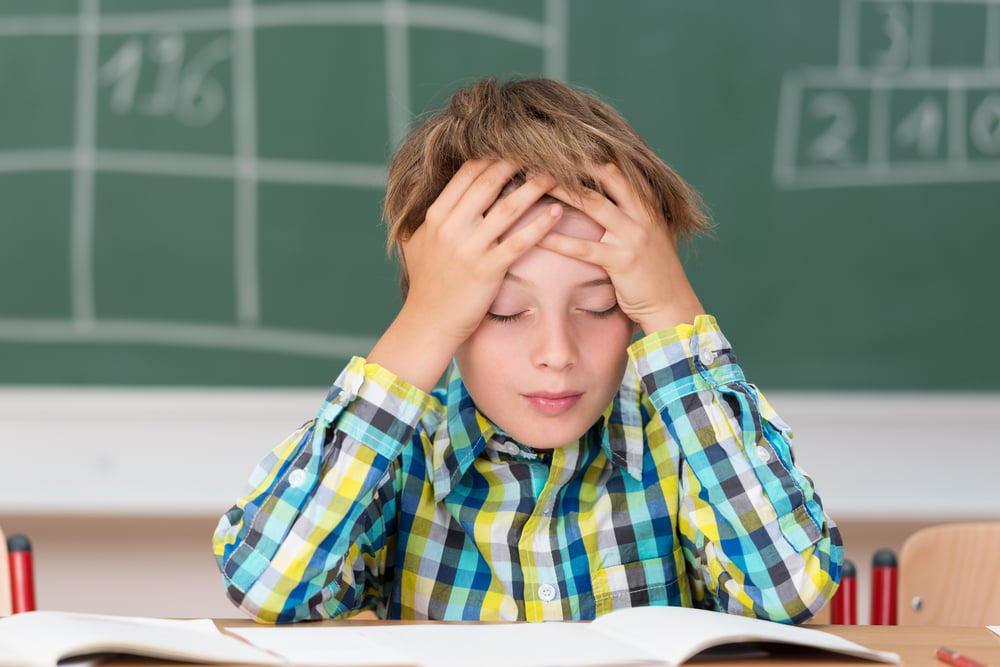
Anxiety is common in children and teens—but is it normal?
Approximately 4.4 million Americans aged 3-17 have been diagnosed with anxiety, according to the Centers for Disease Control and Prevention, which is roughly 7.1% of the youth population. That’s more than double the number of people who have been diagnosed with depression, suggesting that anxiety is a more prominent problem in this age group, or at least that youths are more likely to get diagnosed and treated for it.
Some triggers for anxiety in this age group include fear of being away from parents, low self-esteem,difficulties in social situations, and worries about the future. For many, these triggers have become even more pronounced—and in many ways amplified—by the current global pandemic. Everything from social distancing, physical restrictions, lack of school attendance, and fear of the coronavirus can cause or compound anxiety in children and teens, in turn highlighting the need for open lines of communication between youths and their caregivers.
Here’s the thing: anxiety is normal, but youths don’t often have as many tools at their disposal for dealing with the stressors and fears that they face. It’s up to parents, teachers, and other adults in their lives then to be present and be aware—and to offer resources for mental health services when appropriate.
Unique Causes of Anxiety in Young People
In addition to the causes of anxiety mentioned above (including the ongoing coronavirus pandemic), there are some other unique reasons that children and teens seem to be facing anxiety at such high levels.
- Social media. Social media—and Instagram in particular—can have a seriously negative effect on the mental health of youths. It is common for anxiety to creep in with social media use, especially when young people start to compare their own lives to what they see on the screen.
- High expectations. In 2000, 28% of incoming college freshmen said they felt overwhelmed by the expectations set on them. By 2015, that number had jumped to 41%. Young people today face an unprecedented amount of homework, after-school activities, and other time-consuming obligations, and it’s easy to see how all of this added responsibility leads to heightened levels of stress and anxiety.
- School fears. Even before the COVID-19 pandemic, today’s youths were up against additional fears in the school environment, including higher rates of school shootings. This can make school seem like a scarier place, especially with the growing ubiquity of school shooter drills and lockdowns.
How to Help Youths Cope with Anxiety
Anxiety is part of life for many children and teens today, and it’s important for parents, teachers, and other caregivers to offer support—and access to care—when warranted. Here are some tips for helping young people cope with anxiety.
- Know the signs. Be on the lookout for the signs and symptoms of youth anxiety so that it can be addressed at its earliest stages. This includes falling grades, a lack of interest in previously enjoyed activities, trouble sleeping, and isolating away from friends and family. More acute symptoms may include panic attacks and irritability.
- Keep an open mind. Just because kids don’t have bills to pay and other adult responsibilities doesn’t mean that the causes of their anxiety aren’t legitimate. When talking to children and teens about anxiety, try to put yourself in their shoes and understand that, to them, the problems that they are up against are very real and stressful.
- Be smart about social media use. With such a strong connection between social media use and anxiety, it’s crucial for teens to have boundaries around using social media platforms. Signing off entirely probably isn’t realistic (or even necessary), but caregivers should check-in regularly with young people about what’s going on in their social community and how they’re feeling about it.
If problems are severe or otherwise interfering with a child or teen’s ability to function at home or in school, the next best step is to seek out professional help. Psychotherapy, cognitive behavior therapy, and medications are all modes of treatment that can help youths better handle the anxiety that they face.

